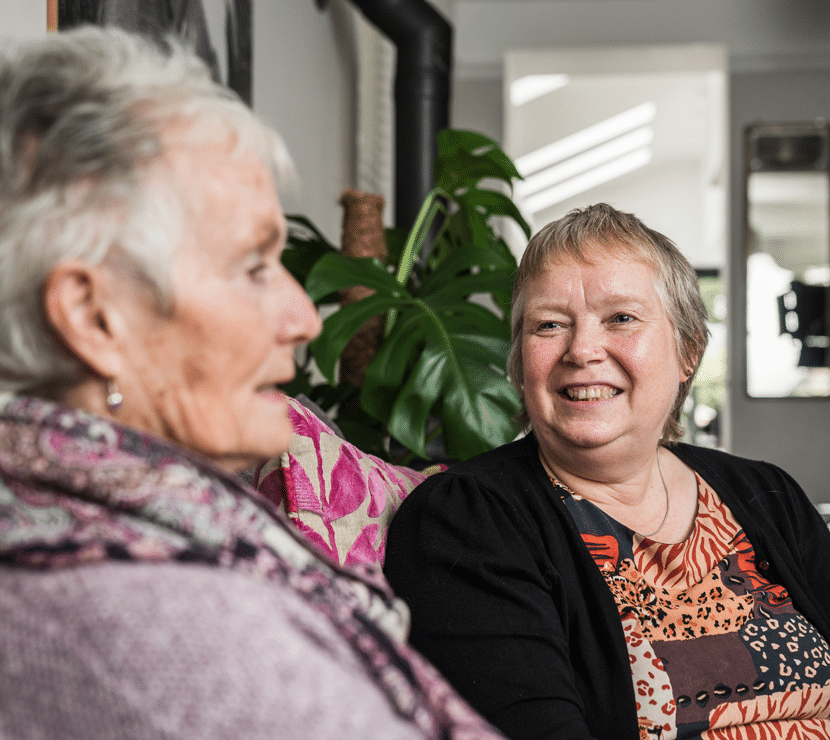The bond between seniors and their furry companions is a cherished aspect of life, one that offers many far-reaching benefits beyond companionship. Research suggests that pet ownership provides many physical benefits, including lowering blood pressure and increasing stamina. But the benefits extend far beyond physical well-being. The unique bond created between older owners and their pets enriches socialisation and overall quality of life.
Despite the many benefits, caring for a cat or dog comes with its own set of challenges as individuals age. Physical limitations, memory concerns, and financial constraints may complicate caring for a beloved pet.
For elderly people and their families in the UK, navigating these challenges often necessitates a robust support system. This elderly pet care guide provides insights, tips, and resources to empower our elders and their families to ensure they can continue enjoying life with their cherished pets.
The benefits of pet ownership
A growing body of research in the UK highlights the numerous advantages of pet ownership, particularly for elderly people. Several studies conducted across the UK shed light on the positive impact of pets on older adults’ physical and emotional well-being.
Studies from the University of York highlight the profound emotional benefits of pet ownership for the elderly. Having a pet companion is associated with reduced feelings of loneliness and overall mood enhancement, contributing to a more positive mental state.
Research from the University of Southampton underscores the role of pets in fostering increased social interaction among elderly individuals, irrespective of their living arrangements. Pets provide a common ground for socialising, encouraging connections with others in the community.
Studies from institutions like King’s College London explore the cognitive benefits of pet interaction for elderly individuals. Engaging with pets provides mental stimulation, potentially contributing to cognitive well-being and can help prevent cognitive decline.
These UK-based studies collectively affirm that pet ownership substantially benefits the elderly, spanning emotional, social, and physical health. Whether living in care homes or privately in their own homes, the companionship of pets plays a vital role in enhancing the overall quality of life for our elders.
Signs an elder may need pet care
The joy of having a pet is immeasurable, but as our loved ones age, their ability to care for their companions may face challenges. Recognising the signs that an elder may need additional support in caring for their pets is crucial for ensuring the well-being of both the elderly owner and their pets.
Here are key indicators that it may be time to consider extra support with pet care:
- Physical limitations:
- Signs: Difficulty bending, lifting, or reaching.
- What to Look For: Observe if your loved one struggles with basic physical tasks essential for pet care, such as bending down to fill food bowls or cleaning litter boxes.
- Memory concerns:
- Signs: Forgetfulness, missed feeding times, or neglecting regular walks.
- What to Look For: Keep an eye on any signs of memory lapses that could impact the routine care and attention their pet requires.
- Financial constraints:
- Signs: Expressing concerns about the cost of pet food, veterinary care, or other essentials.
- What to Look For: Listen for any hints or direct expressions of financial challenges related to pet care expenses.
- Changes in pet’s appearance or behaviour:
- Signs: Unkempt fur, signs of weight loss, or behavioural changes.
- What to Look For: Regularly assess the pet’s physical condition and behaviour, as any notable changes may indicate difficulties in their care.
- Isolation from pet:
- Signs: Decreased interaction, reluctance to play, or avoiding the pet altogether.
- What to Look For: Note if the elder shows signs of withdrawing from their pet, as this may indicate challenges in providing companionship.
- Messy living environment:
- Signs: Unsanitary conditions or difficulties maintaining cleanliness.
- What to Look For: Check the living space for any signs of challenges in keeping the environment clean, which may affect both the owner’s and the pet’s well-being.
How to address these signs
Recognising signs that an older adult may need additional support in caring for their pets is the first step towards ensuring the well-being of both the elderly owner and their animal. Here are practical and compassionate ways to address these signs:
- Open communication
Create a safe space for your loved one to express their feelings and challenges openly. Rather than highlighting all the problems you are seeing, it can be more productive to ask if there is any support you can provide. You want to foster an environment where they feel comfortable discussing any difficulties they may face in caring for their pet, free from judgement.
- Explore support services
Look into local pet care services, volunteers, or organisations that assist seniors. Some elderly people may feel more comfortable accepting support from someone outside of their immediate family. Find reputable services that align with the specific needs of the elderly owner and their pets. For instance, if your loved one has mobility challenges, you may want to consider a regular dog walking service.
- Create a shared pet care plan
Engage family members or friends in creating a comprehensive care plan that aligns with everyone’s needs and preferences. Ensure that everyone understands and agrees on their role in supporting the elder and their pet. Keep the conversation friendly and engaging – you want to ensure that everyone, especially the older individual, has a chance to share their opinions and concerns.
Work together to develop a consistent daily routine for pet care that includes feeding, grooming, and exercise. Clearly outline responsibilities and schedule regular check-ins to assess the plan’s effectiveness and plan for the future in case your loved one’s abilities change. Consider enlisting the help of family, friends, neighbours or community services to ensure your loved one has the support they need.
- Regular check-ins
Establish a regular check-in schedule to monitor the well-being of both the elder and their pet. Use these check-ins as opportunities to address evolving needs, provide additional support, and ensure the continued success of the care plan.
It’s essential to foster ongoing communication to stay connected with the elder and their concerns. Understand that needs may change over time, and maintaining an open line of communication is essential for quickly addressing any new challenges.
Can I take a pet into a care home?
When considering a move to a care home, the prospect of bringing along a cherished pet is a significant consideration for many elderly people. However, due to health and safety regulations, only a limited number of residential care homes in the UK welcome residents with pets.
In these pet-friendly care homes, people can choose to reside with their pet in their personal living space or, depending on the type of animal, in designated areas within the home’s garden. Upon moving into a care home, a personalised support plan is typically crafted, taking into account the unique needs of both the resident and their furry companion.
Before making a decision, it’s essential to check the care home’s specific policies regarding pets, engage in open discussions with staff about your pet’s needs, and address any legal and financial aspects associated with pet ownership in the care home setting.
The Cinnamon Trust has compiled a national register of pet-friendly care homes and retirement villages across the UK.
Common options for pet care
From pet-friendly care homes to embracing modern technology through apps, there are many ways we can support our elderly loved ones in keeping their pets. Here are some common options for pet care:
Pet-friendly care homes or assisted living communities
Elderly individuals may choose to reside in pet-friendly care homes or assisted living communities. These environments often accommodate pets, providing designated areas and support services to ensure the well-being of both residents and their companions.
However, extra costs may be associated with bringing a pet into a residential care facility. It’s advisable to thoroughly review the facility’s pet policy and discuss any associated fees to ensure a transparent understanding of the financial aspects.
Embrace apps and technology
Pet care apps offer a convenient way for elderly pet owners to manage various aspects of their pet’s well-being. Downloadable apps like TaskRabbit, Rover or Wag! allow pet owners to arrange walks, playtime or even long-term boarding for their animals.
Other apps and technologies make it easier for pet owners to care for their pets. Smartphone apps can be downloaded with features such as reminders for feeding schedules, vet appointments, and medication administration.
Pet monitoring devices allow older adults to keep track of their pet’s well-being remotely. These devices may include cameras, automatic feeders, and health monitoring tools.
Local pet care services
Look into local pet care services, such as dog walking, grooming, or veterinary home visits, that provide practical assistance for elderly individuals needing help with specific aspects of pet care.
Before engaging any service, ensure to check references and read reviews from local clients. Arrange a meeting between the elderly individual, their pet, and the potential person caring for the pet. This allows them to assess compatibility and ensures the pet is comfortable with the chosen caregiver.
Pet foster programmes
Pet foster programmes offer temporary care solutions for pets when owners face situations where they may need to rehome their pet temporarily. This option ensures that pets receive care in a nurturing environment while allowing owners the flexibility they need. Blue Cross helps connect elderly people with pet foster programmes.
Live-in care
For a comprehensive and personalised approach, live-in care involves having a professional carer residing in the home. This option provides continuous support not only for the elderly individual but also for their pet. Professional carers can assist with daily tasks, pet care routines, and provide companionship, promoting a holistic approach to well-being.
There are countless benefits to having a high-quality live-in care service when compared to moving into a care or nursing home. Learn more about the benefits of live-in care from a reputable provider like Oxford Aunts.
Further resources
The Cinnamon Trust is the UK’s National Charity for older people, the terminally ill and their pets. They offer practical support for pet owners who find themselves unable to manage physical tasks relating to pet care. Services available include volunteer dog walkers, cat groomers, vet transporters and temporary fosterers.
Age UK has a wealth of resources on elderly people and pet ownership.
Stay in your own home with live-in care
We know how important a much-loved pet is and how difficult caring for it may be when faced with other health concerns that are impacting day-to-day life. With an Oxford Aunts carer, you can be assured that your pet will be well cared for whilst you continue to get all the benefits and enjoyment from your beloved pet, as you always have.
Oxford Aunts has provided care services throughout Oxfordshire and surrounding counties for over 50 years. Located in the heart of Oxford, our reputation is built on high standards of live-in care, local expertise and an approach to care delivery that is trusted by families throughout our community and beyond.
Discover how our compassionate live-in care service can enhance the well-being of your elderly loved ones, enabling them to remain in the comfort of their homes, surrounded by their cherished pets.





